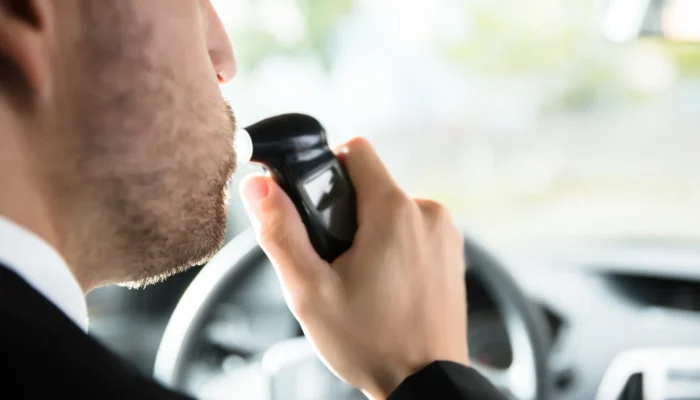When you have been arrested and charged with a DUI, you may feel that accepting an ignition interlock device IID is a worthwhile trade-off to avoiding jail time. However, while these tools can keep you out of jail, you may be worried about issues that can arise with these IIDs.
No tool is perfect, but you may have serious issues that impact your ability to use the vehicle you accepted this penalty. While an IID may seem like a fair trade-off, be sure that you understand what this device does and how things can go wrong before you accept a plea deal. Keep reading for more from a skilled Pennsylvania DUI lawyer.
How ignition interlock devices work
Before we can fully explain the problems that ignition interlock devices (IIDs) present, it’s important to understand how they work. IIDs prevent the engine from starting if the driver’s blood alcohol content is above a certain limit. Drivers have to blow into a tube, similar to a Breathalyzer, before the engine will start.
The obvious solution for drivers who have been drinking is to have someone else blow into the device instead. However, this is prevented by requiring periodic tests as the car is being driven. When required, drivers must pull over and blow into the IID again before they can continue.
While ignition interlock devices seem like a convenient solution to losing your license, they don’t come cheap. Installation can cost upwards of $150, and then there are the monthly fees. IIDs must be maintained, which can cost about $80 a month. If you are required to keep an IID in your car for a year, that comes out to over $1,100.
Why are these devices inaccurate?
The core of the problem comes with how the ignition interlock device works. They are specially designed to measure the temperature of the air being blown into it, as well as the strength of the breath. That prevents drivers from using something like compressed air to trick the ignition interlock device. However, it is this very same mechanism that can prevent some drivers from starting their vehicles, even if they are stone sober.
Certain health conditions affect accuracy
Issues like asthma and emphysema can prevent sober drivers from providing the full breath needed for the engine to start. One Pennsylvania driver, Donna Slagle, has experienced this issue firsthand. So far, she has had to have her ignition interlock device replaced twice, with each one recalibrated for the amount of air she can exhale. Yet, she still is unable to start her car sometimes because her exhale into the IID still isn’t strong enough.
With these issues still prevalent in our state, some critics are calling for a loosening of Senate Bill 290. Or, at the very least, they are calling for IID manufacturers to give more consideration to those drivers who are unable to give a strong exhale.
High recidivism rates
Physical impairments aren’t the only issue. IIDs have been used in Pennsylvania in some form or fashion for almost two decades now. Yes, DUI arrests have stayed relatively constant. Though there has been a decrease in alcohol-related DUIs, there has been a sharp increase in drug-related DUI arrests. In addition, once the devices are removed from the vehicle, the recidivism rates are practically the same as those who never had IIDs installed.
Ignition interlock devices indeed reduce the incidence of drunk driving for those who have them installed, but the overall cost and benefits of these devices are questionable at best.
Other ignition interlock device problems
The issues that an IID can cause do not stop there. The very act of installing it may cause issues. Many mechanics are concerned about working on these vehicles because IIDs are hardwired to the vehicle.
Thus, many mechanics are concerned that, by working on these vehicles, they may accidentally tamper with evidence and may face liability. After all, these tools are ordered by the court.
Unfortunately, many people find themselves also struggling to get their car to start even if they are not drinking. False positives can impact your vehicle, making it impossible to drive even if you are following the rules of your probation.
Ignition interlock electrical problems
An IID runs on a battery, and batteries can fail. Unfortunately, there are many reports of ignition interlock electrical problems and reports of ignition interlock causing car problems.
For example, the ignition interlock may have drained your vehicle battery. That can lead to an expensive battery replacement or at least a towing or need for a battery recharging.
You may also experience several errors or malfunctions even if you use it correctly. These malfunctions can lead to a lockout, leaving your car completely useless. If other devices are pulling power from the car battery, your IID may not have enough power to work, leaving you stranded. This defeats the purpose of accepting a plea deal and having this device installed in the first place.
Get help with a Pennsylvania DUI arrest today
Any tool can be inaccurate, but the problems with the accuracy of ignition interlock devices, not to mention other problems that come with these tools, can lead to serious issues for you. Unfortunately, accepting a plea deal and using these devices can impact your freedom when pleading not guilty. A Philadelphia County DUI attorney could have protected you.
If you have been arrested for a DUI accident, and the court is offering you an IID, an attorney can help you fight the charges and potentially reduce or dismiss your sentence. With an attorney from Kellis Law Firm at your side, you may have a better chance to avoid serious penalties and protect your future.
If you are ready to speak with your attorney about your options to build a strong defense, reach out by calling (215) 977-4183 or filling out our online contact form.
